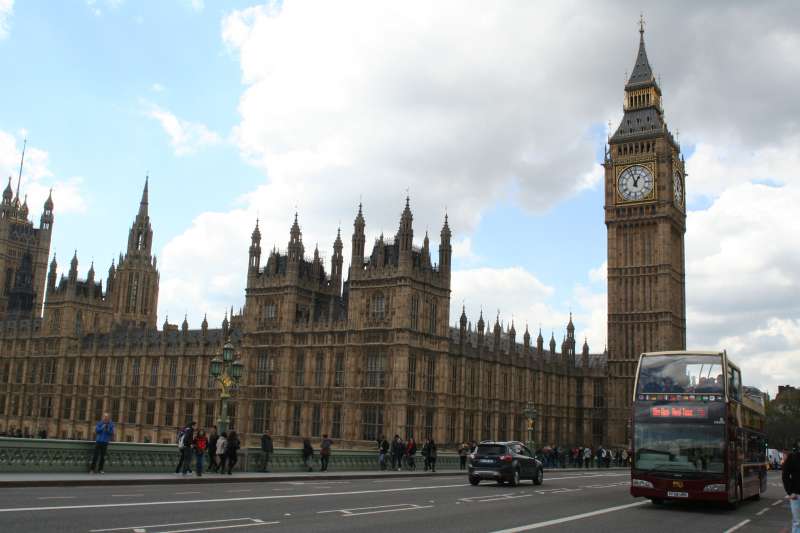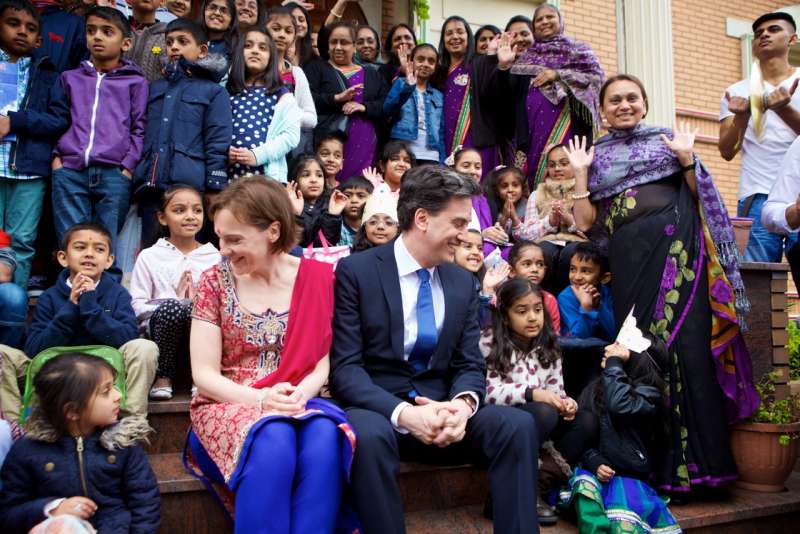Britain is going to face an uncertain future on Friday. It will witness an array of messy affairs unfolding at the Westminster village. The fractured verdict will open doors for horse trading and endless parleys in between politicians. It will also trigger the call for political reforms like proportional representation…writes Kaliph Anaz

The first result of the 2015 general election will be declared at Houghton and Sunderland South. Bridget Phillipson of Labour is expected to be elected as MP for the seat when the results are read out at 23:08 on 7th May. The constituency is gunning for a sixth consecutive fastest declaration at general elections. It will be followed by 649 other seats across the country. But the question is whether Mr Phillipson’s party muster enough seats to call the shots at Westminster Village which houses the historic Parliament building.
Politicians and candidates are making a last-minute attempt to bag more votes on the final day of campaigning before the general election polls open at 7am on Thursday. Economy, NHS, Immigration, Defence, Education, Crime, pensions, housing and crime are the main issues at stake at the polls.
Polls suggest no party will win enough seats for an outright majority. The magical number of 325 is still elusive for major players. Surveys are predicting a hung parliament with no one gets the majority. But they are all agreeing on one factor – SNP landslide in Scotland. The Scottish Nationalist Party (SNP) under the First Minister Nicola Sturgeon is encashing the momentum gained through the Scottish Referendum election to stage a clean sweep. Even the return of shy Labour votes can’t stem the SNP tide in Scotland. Mrs Sturgeon is ready to form a coalition with Ed Miliband but their stand on Scottish independence make them toxic for the rest of the country. If Milband accept the support of SNP, he is writing the epitaph of the Labour party in England and Scotland. But this is politics. Anything will happen and rules will change proportional to the benefits.
If Miliband want to be a one-time prime minister at No 10 Downing Street and want to hang his portrait along with Thatcher, Churchill and Blair, he will swallow his pride to accept the SNP lifeline.
Prime Minister David Cameron is building his hopes on the fear of Labour-SNP coalition to garner support from the undecided English voters. The right-wing media is fully supporting the agenda to highlight the impact of Labour-SNP deal on England. His strategy to swing the votes with a stringer economy card didn’t clicked because of the fall out of welfare cuts and the state of affairs at the National Health Services (NHS)
The prime minister, whose Conservative Party won 307 seats in 2010, said the Labour-SNP deal would face “huge questions of credibility.”
“It’s my responsibility as Prime Minister to alert the country against the consequence of a Labour-SNP deal. SNP has only one agenda – the division of our Union,” he added. “SNP will take the government to ransom. The survival of the government will be a day to day affair.”
The prime minister is pegging on a strong economy and a stable government to fulfil his ambition to retain the post. He has already announced his intention to retire after the second term.
Cameron told BBC Radio 4 that the country was “stronger than it was five years ago” but there was “more to do”.
Labour leader Ed Miliband, who raked the anger of the business elite by his high tax rates and withdrawing the non-dom facility, hinges his hopes on the electorates anger on the poor state of hospitals and welfare cuts. The coalition government tuition fee hike and the introduction of tax on vacant bedroom of council houses will be a boon to the Labour leader.
Mr Miliband is looking to improve on the 258 seats Labour won in 2010 under the leadership of former Prime Minister Gordon Brown.

Miliband said the voters face a “clear choice” between “a government that puts working people first, or one that works for the privileged few”. He is offering ‘Fairness’ in governance to garner support.
Mr Nick Clegg, whose Liberal Democrats are battling to keep hold of the 57 seats they won five years ago, is predicting the possibility of another election by December if the Labour forms a coalition with SNP.
“The Liberal Democrats have shown that coalitions can be strong and stable. But instead of creating stability, Labour and the Conservatives will create a shambles,” Clegg said. “If they try to stagger through with a messy and unstable minority government instead of putting the country first then they will risk all the hard work and sacrifices people have made over the last five years.
“The last thing Britain needs is a second election before Christmas. But that is exactly what will happen if Miliband and Cameron put their own political interest ahead of the national interest,” he added.
But the chance of another election is difficult under the terms of the Fixed Term Parliaments Act (FTPA). The next election is due to be in May 2020. The law was passed by the coalition in 2011 but the sitting prime minister could call a general election whenever he liked. In the case of forming a minority government, there is a chance for Cameron because the surveys are predicting his party is going to get more seats than Labour. But this will be a big blow for SNP’s Nicola Sturgeon. She is still hoping a deal with Labour to keep the Tories out of No 10.
She said the voters won’t forgive Miliband for spoiling an opportunity to oust Tories and end the austerity measures.
“The vote is an opportunity for us to come together, to unite and link arms as one Scotland and vote SNP to make our voice heard,” she told her supporters in Glasgow.
The right-wing UKIP under Nigel Farage MEP has rejected suggestions its vote is being squeezed, saying it will “significantly and perhaps dramatically” outperform expectations.
“That means doing much better than a political class consensus of a vote share of around 10% and one or two seats in the Commons,” its economics spokesman Patrick O’Flynn said.
Green Party leader Natalie Bennett, whose party is looking to add to the one seat it won in 2010, said she will stress her determination to “keep the Tories out of government and keep Labour in line”.
Britain is going to face an uncertain future on Friday. It will witness an array of messy affairs unfolding at the Westminster village. The fractured verdict will open doors for horse trading and endless parleys in between politicians. It will also trigger the call for political reforms like proportional representation. Let’s wait and see.